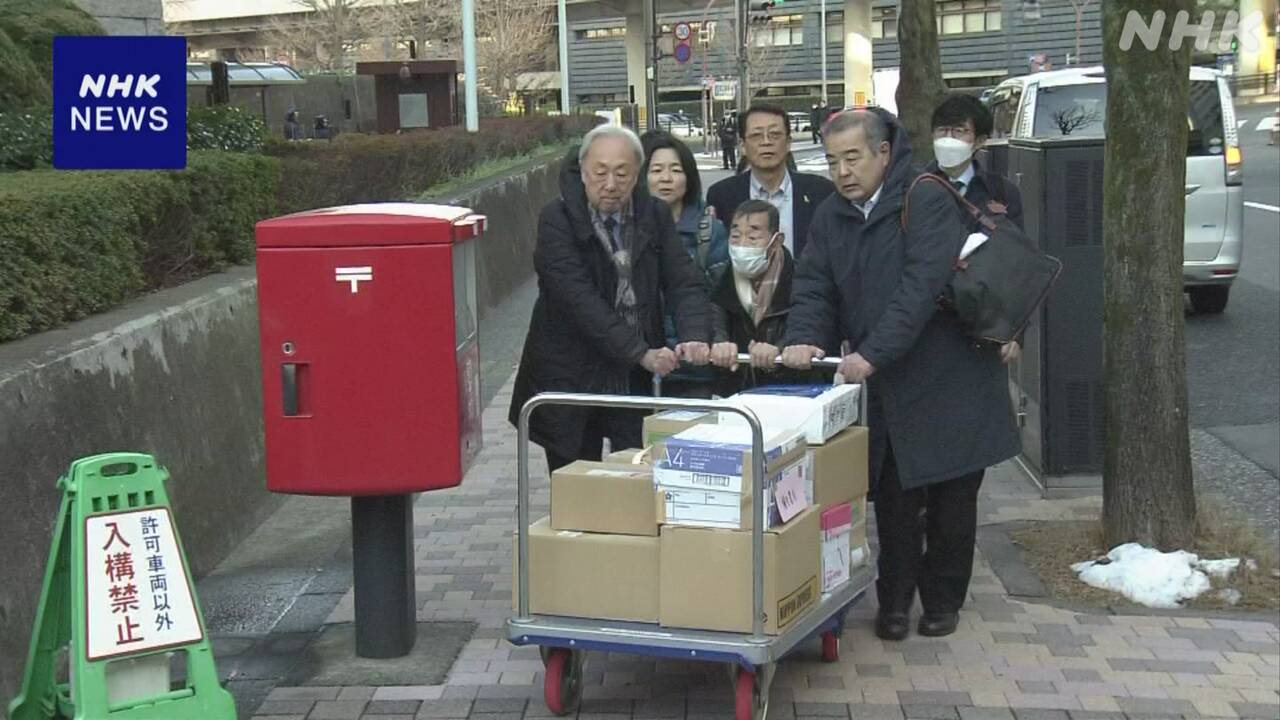Before the Grand Bench of the Supreme Court hears a case in which people who were forced to undergo sterilization due to disabilities or other reasons under the old Eugenics Protection Act are seeking compensation from the state, the plaintiffs and their defense team are I visited the court and asked for a verdict that would help me recover from the damage.
Those who visited the Supreme Court on the 7th were the plaintiff in the Tokyo trial, a man who is suing for damages under the name Kitasaburo, and his lawyer.
In addition to submitting 123,000 signatures, the men requested a ruling that would lead to restitution, and also requested that an environment be created that would make it easier for people with disabilities to attend, such as sign language interpreters and materials in Braille. .
Under the former Eugenics Protection Law, which lasted from 1948 to 1996 shortly after the war, more than 16,000 people are said to have been forced to undergo sterilization due to disabilities or other reasons.
The Supreme Court has decided to have a full bench of 15 judges hear the cases in which people who were forced to undergo sterilization are suing the government, and a unified decision is expected to be made by the end of the year.
Koji Niisato, co-representative of the National Lawyers' Association for Eugenics Protection Law Victims, said, ``I hope that a fair judgment will be made as soon as possible that the old Eugenics Protection Act violates the Constitution.I hope that a judgment will be made that will overcome the barrier of time and provide relief to everyone.'' I look forward to it," he said.
According to the defense team, out of the 18 judgments handed down by first and second instance courts across the country, in October last year, the Sendai High Court awarded 16.5 million yen per person as ``discriminatory treatment that violates the constitution.'' In addition to ordering the state to pay the amount, the Osaka High Court also ordered compensation in January, arguing that the right to seek compensation has not been exhausted, contrary to the first instance decision, and the plaintiffs won in nine cases.
On the other hand, there were nine cases in which the lawsuits were lost on the grounds that the period within which compensation could be sought had expired.

